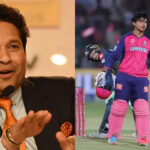In an emotional address to the Jammu and Kashmir Assembly, Chief Minister Omar Abdullah vowed to defeat terrorism in the Union Territory, days after the deadly Pahalgam attack that killed 25 tourists and one local. The Assembly unanimously passed a resolution condemning the incident and pledging to thwart the designs of terrorists.
Delivering his first speech in the House since the attack, Abdullah admitted he failed in his duty to ensure the safe return of tourists and acknowledged feeling helpless.
Here are the key takeaways from his address:
1. ‘I Felt Helpless, Failed In My Duty’
Holding the tourism portfolio as well, Abdullah said it was his fundamental responsibility to guarantee the safety of visitors. “I felt helpless in apologising to the victims’ families,” he said, calling the Pahalgam attack one of the worst in over two decades.
2. ‘The Entire Nation Has Been Hit’
Abdullah said the impact of the attack transcended and Kashmir, touching every corner of India. “From north to south and from east to west… from Arunachal to Gujarat and Jammu and Kashmir to Kerala… the entire country has been affected by this attack,” he said. Leaders across the political spectrum condemned the assault, protests erupted nationwide, and security was ramped up at key tourist hubs. The attack was India’s deadliest targeting civilians since the 26/11 attacks in 2008.
3. ‘Will Not Seek Statehood Using This Tragedy’
Abdullah, striking a measured tone, said he would not exploit the tragedy to push for the restoration of statehood. “The security in Jammu and Kashmir is not the responsibility of the elected government, but I will not use this opportunity (terror attack) to seek statehood. How can I push for statehood using the Pahalgam terror attack?” he said. This comes after Abdullah had earlier expressed optimism on statehood following talks with Union Home Minister .
4. ‘A Spontaneous, Unified Protest Across Kashmir’
Despite the bloodshed, Abdullah found hope in the spontaneous unity displayed across Kashmir. “For the first time in many years, I witnessed protests that were truly unified. No political party or leader orchestrated them, and no organised banners or candlelight marches were planned. The outrage and grief were spontaneous, coming straight from the hearts of the people. Every mosque observed silence” he said.
Abdullah said that this change must be encouraged and strengthened. “We must boost and nurture this spirit of unity, compassion, and resilience that has emerged from among the people themselves,” he said. He urged that this rare unity be nurtured to heal the Valley.
5. ‘Alienating The Public Will Only Fuel Militancy’
Issuing a word of caution to the Centre, Abdullah warned against heavy-handed tactics. “We should not take any step that will alienate people. We cannot control a terrorist with a gun but we can end militancy if people are with us. I think that time has come,” he said.
The National Investigation Agency (NIA) has taken charge of the Pahalgam probe, examining eyewitness accounts, forensic evidence, and launching combing operations in the forests. J&K Police have demolished nine houses linked to militant suspects.
In a sharp diplomatic escalation, India suspended the Indus Waters Treaty, expelled Pakistani diplomats, and shut the Attari-Wagah border, ordering all Pakistani nationals to leave within 48 hours. Pakistan warned that scrapping the treaty would be treated as an “act of war” and threatened to suspend all bilateral agreements.







